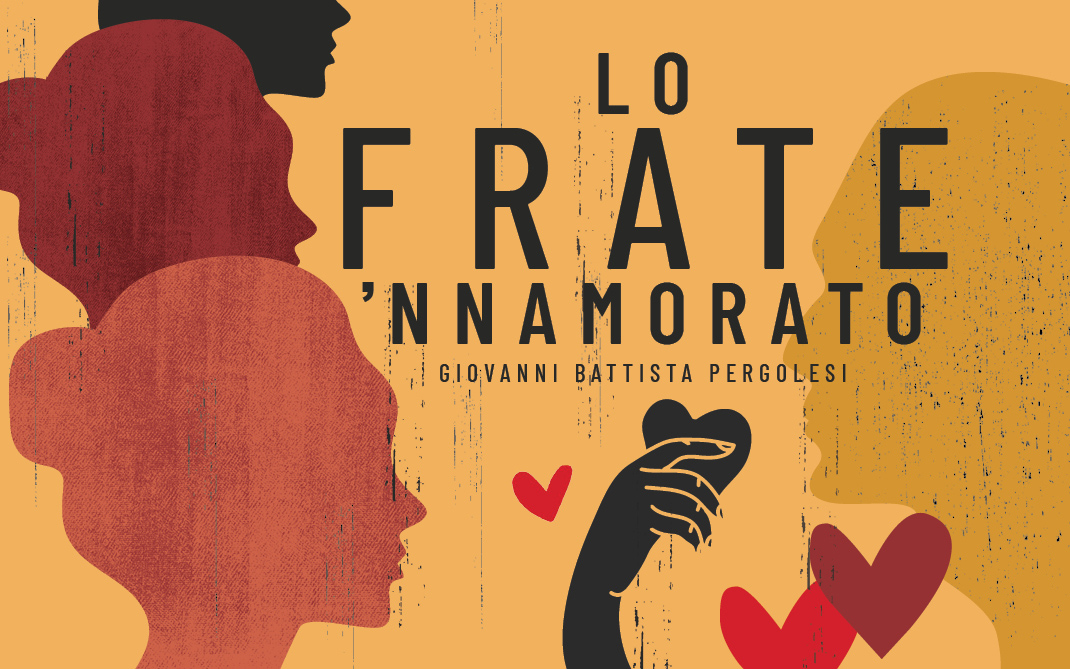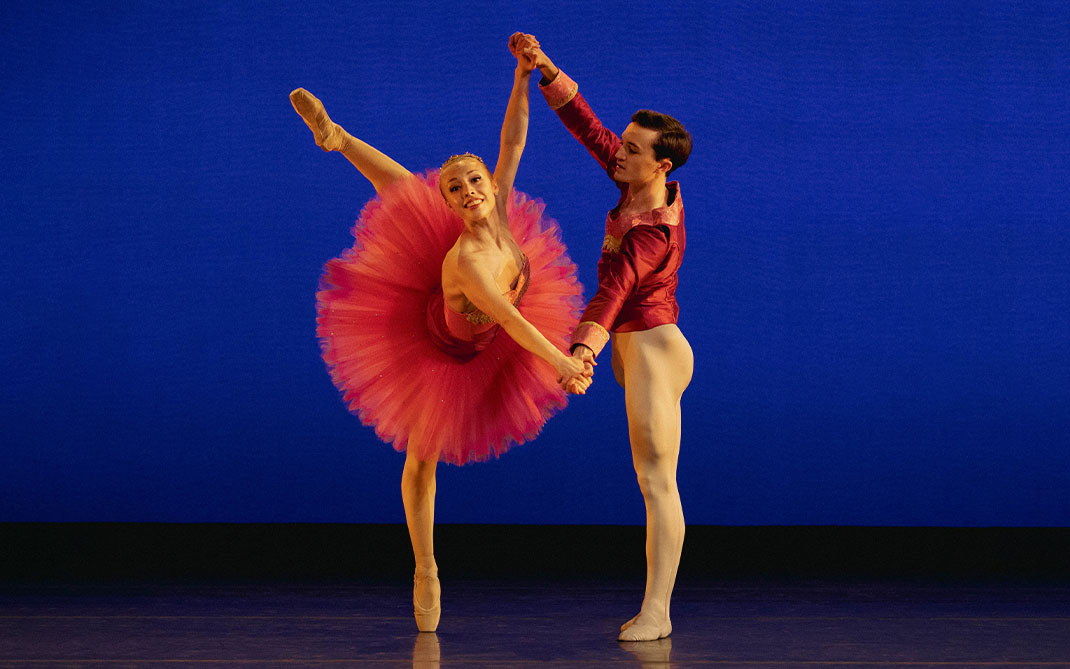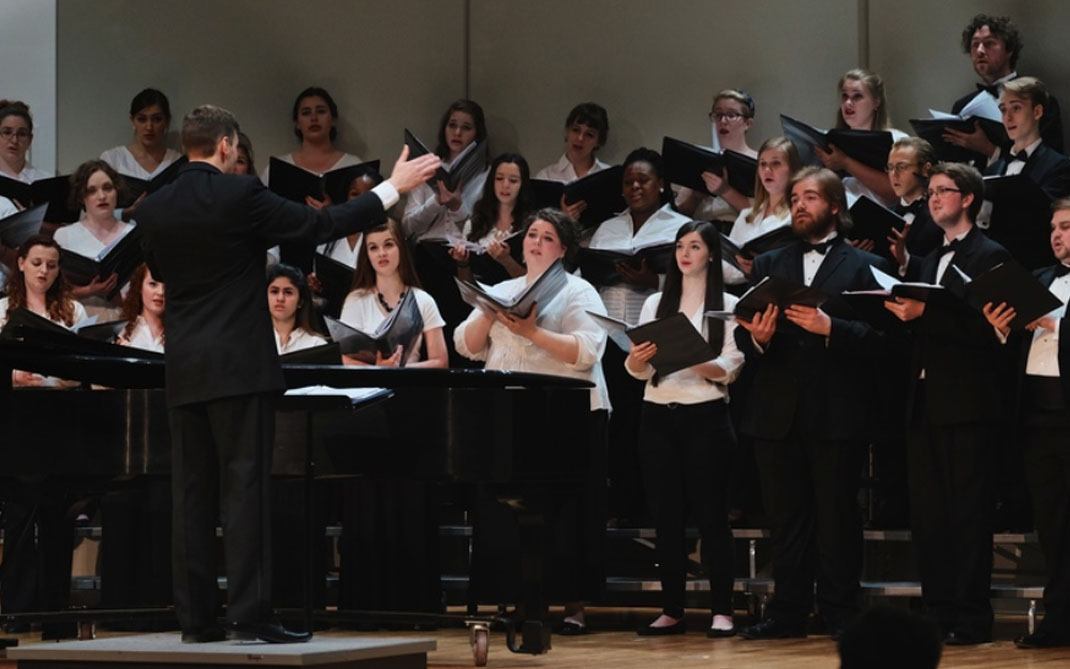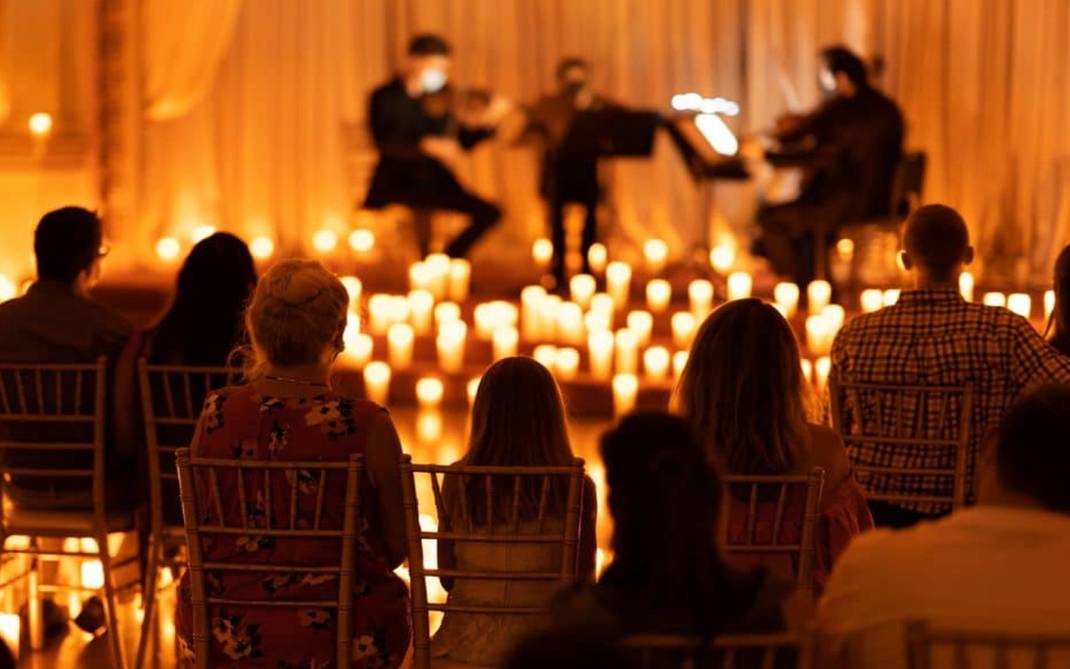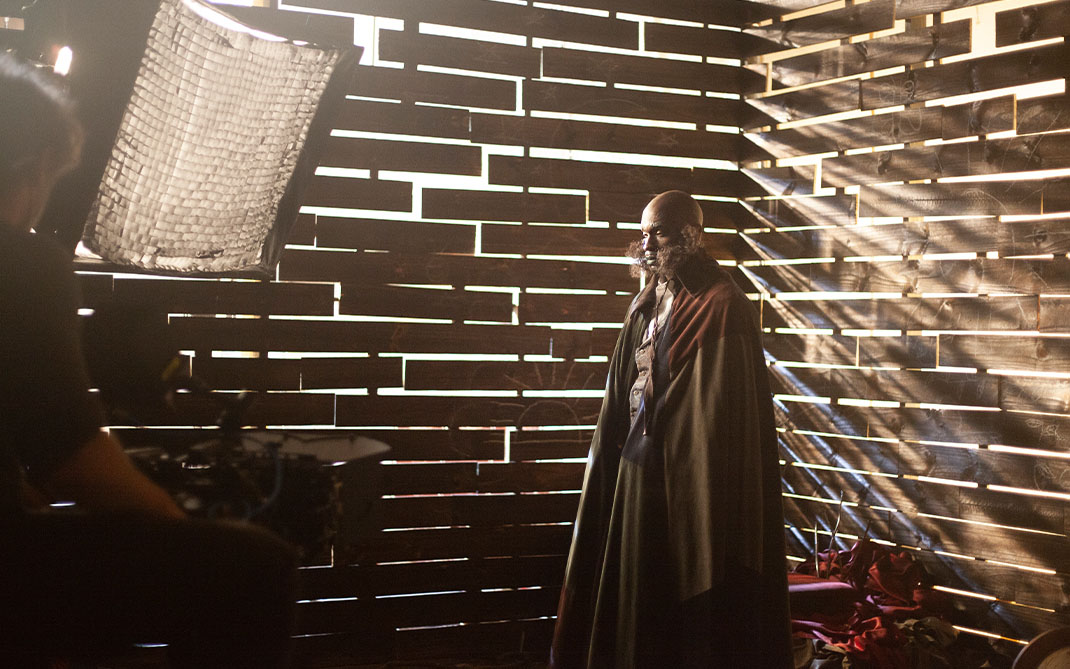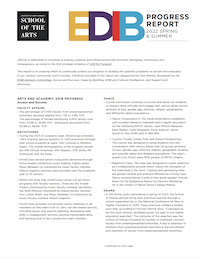2022 Spring and Summer EDIB Progress Report
UNCSA is dedicated to investing in policies, systems and infrastructure that promote belonging, community and transparency, as noted in the first strategic initiative of UNCSA Forward.
This report is an ongoing effort to continually surface our progress in tackling the systemic problems of racism and inequality in our campus community and in society. Initiatives included in this report are categorized by four themes developed by the EDIB Advisory Committee: Access and Success, Capacity Building, EDIB and Cultural Intelligence, and Support and Advocacy.
Arts and Academic Progress INSTITUTIONAL PROGRESS
ARTS AND ACADEMIC EDIB PROGRESS
Access and Success
Faculty Affairs
- The percentage of EHRA faculty from underrepresented minorities declined slightly from 7.1% to 5.8% YOY. The percentage of female-identifying EHRA faculty rose from 37.9% to 39.6% YOY.
ArtistCorps
- During the 2021-22 academic year, ArtistCorps provided 1,464 ongoing service sessions to 1,245 preschool through high school students at eight Title I schools in Winston-Salem. The overall demographics of the students served are 41% African American, 31% Hispanic, 22% white, 4% multiracial, and 2% Asian.
- ArtistCorps served seniors living with dementia through thrice-weekly interactive music-making. Eighty-seven Music Between Us (mentored by music faculty member Allison Gagnon) sessions were provided over the academic year to 24 seniors.
- Within the work that ArtistCorps carries out are three programs with faculty mentors. These are the Vivaldi Project (mentored by music faculty member Ida Bieler), the Wolf Method (mentored by drama faculty member Ann Louise Wolf), and Music Between Us (mentored by music faculty member Allison Gagnon).
- ArtistCorps provides cocurricular career readiness to all members as they learn how to carry out arts-based service, including lesson and session planning, developing new skills in engagement, actively utilizing transferable skills, and learning how to be a productive team member.
Dance
- Course curriculum continued to evolve and allow our students to interact, think critically and engage with various artists across divisions of race, gender, age, ethnicity, religion, geographies and differently-abled populations.
- Dance Composition II: The visual artist/dance installation unit included reference materials and in-depth discussion on the following BIPOC artists: Jean-Michel Basquiat, Kara Walker, Faith Ringgold, Anish Kapoor, Jaune Quick-to-See Smith and Ai Wei Wei.
- Current Trends, Career Prep and Dance Perspectives: The course was designed to bring students into live conversation with various artists that cut across divisions of race, gender, age, ethnicity, religion, geographic location, and typically abled and disabled populations. This year’s guests (via Zoom) were 60% people of BIPOC origins.
- Repertory Class: This class was designed to create repertory as a collaborative process that values the strengths of the individual in the room. Casting and partnering roles are gender-neutral and embrace differences in body type. Dance received funds from the Thomas S. Kenan Institute to hire guest speaker Antuan Byers for his Budgeting Basics for Dancers Workshop. He is the creator of Black Dance Change Makers.
Drama
- In the hiring cycle culminating in spring of 2022, the School of Drama utilized hiring best practices learned through a school-supported trip to the National Conference on Race in Higher Education in 2019. These practices yielded a finalist pool that, according to Provost Patrick Sims, “Cultivated by far the most diverse candidate pools I’ve seen in any higher education searches.” The outcome of the searches was that the School of Drama increased its number of multiyear contract faculty from underrepresented minorities significantly. A key to retention of students from underrepresented minorities is the recruitment and retention of faculty from underrepresented minorities.
Capacity Building and Cultural Intelligence
ArtistCorps
- ArtistCorps is an ongoing, curated experience for its members and includes more than 30 hours of whole group training. Much of the training centers around EDIB issues encountered in Winston-Salem and the local education system. Many members additionally choose to participate in the ArtistCorps Book Club. Two of the books this year, “Just Mercy” by Bryan Stevenson and “Broke in America: Seeing, Understanding, and Ending U.S. Poverty” by Joanne Samuel Goldblum and Colleen Shaddox, presented EDIB themes.
Dance
- Dean Endalyn T. Outlaw dedicated time to discussion with students, colleagues, mentors,
and collaborative partners on panels and podcasts to raise awareness and problem solve
in community with one another. These panels and podcasts included:
- Dean Outlaw served on a panel for the inaugural “Canada-United States Symposium: Addressing Racialization in Ballet, Four Days, Two Countries, One Shared Purpose.” The focus of this symposium was on the role of awareness and cultural competence in teaching ballet.
- Dean Outlaw participated in the “What’s Good with Karine” live Instagram panel on “The Art of Female Black Leadership in Dance,” an interrogation of our dance landscape 20 years from now and how we get there. The virtual presentation highlighted the goals, vision and opinions of five African American women recently appointed to positions of power in historical academic, professional studio schools and dance companies. The accomplished women consisted of Linda Denise Fisher Harrell, artistic director of Hubbard Street Dance company; Francesca Harper, director of Alvin Ailey’s Second Company; Dionne Figgins, director of Eliot Feld School; and Alicia Graf-Mack, director of Juilliard Dance Program. The panel was moderated by Tony-nominated artist Karine Plantadit.
- Dean Outlaw attended the Prix de Lausanne 2022 as a recruiter for UNCSA. Activities included attending Partner’s meetings, classes and performances, as well as speaking and offering scholarships to Prix participants for our program during the networking session. The dean was the only Partner participant of color at the event. She will serve as a juror for the 2023 50th anniversary competition taking place in Lausanne in February. Prix de Lausanne’s objective is to find and support the best talents globally by providing access to the world’s finest schools and companies by providing scholarships.
- Dean Outlaw served as a juror for the 2022 Youth America Grand Prix competition, the world’s largest global dance network. BIPOC women made up 50% of the four-panel jury. The three-day semifinals hosted more than 700 students and provided scholarships and networking opportunities for student-artists seeking professional engagement.
Division of Liberal Arts
- Helped sponsor transgender artist Tona Brown’s visit to campus to talk to students in DLA classes and in Music and Drama.
- Responsive pedagogy: Biweekly work continued under Betsy Towns' leadership and included faculty from Winston-Salem State University (WSSU) and three schools of UNCSA and artists from the community. Responsive pedagogy considers all aspects of the individuals and context-relevant materials to design the learning experience, working more to facilitate learning than instruct didactically. Individual capacities, positionalities, and lines of inquiry, for example, become part of the design. Faculty create a framework where what’s relevant to the student becomes part of the foundation for creative and critical growth. Our goals are: building knowledge of best practices in just and equitable pedagogy; engaging a diverse coalition of educators to innovative trials in their own spaces; growing capacity for faculty to teach within the framework of responsive pedagogy core to Studio for Creative Practice and the Program in Art and Inquiry; and inspiring and relieving faculty exhausted by the intensities of 2020-21 to enable them to better serve the growth of creative leaders of the future.
- Art and Social Justice: Betsy Towns taught a second iteration of Art and Social Justice, which supported student research in local and national social justice questions most pressing to each of them, and supported their testing of how they can use artistic practice to effect change on matters of justice.
Drama and Liberal Arts
- Partnered with Play On Shakespeare to produce their adaptation of Shakespeare’s “Coriolanus.” Play On Shakespeare grew out of the world-renowned Oregon Shakespeare Festival, with a mission to help people from across a spectrum of communities recognize that they can find their own stories in the world of Shakespeare’s plays. Play On Shakespeare has commisioned adaptations of all 36 Shakespeare plays by playwrights who are primarily from underrepresented minorities, female or nonbinary identifying, and LGBTQIA+ identifying. This allowed students to work with multiple artists from these communities, supporting the retention of students from the same communities. This project also demonstrated that creating a more inclusive curriculum doesn’t mean the elimination of any great work from the past, but simply the examination of this work through a new, EDIB-focused lens.
Drama
- Produced two projects focusing on the Asian American and Pacific Islander experience (“Passage” by Christopher Chen) and the African American experience (“Passing Strange” by Stew). Continuing to expand programming to include voices of historically underrepresented communities supports both recruitment and retention of students from those communities.
High School
- Student Summer Reading: “We Are Displaced” by Malala Yousafzai, “The House on Mango Street” by Sandra Cisneros, “Interior Chinatown” by Charles Yu,“Broke in America” by Joanne Goldblum and Colleen Shaddox, and “Testify!” a zine by Bronwyn Mauldin.
- Faculty Summer Reading: “True: The Four Seasons of Jackie Robinson” by Kostya Kennedy, “Care Work: Dreaming Disability Justice” by Leah Lakshmi Piepzna-Samarasinha and “Interior Chinatown: A Novel” by Charles Yu.
Filmmaking
- Hosted a conversation for the faculty and staff with Dr. Idell Natterson, a psychotherapist who addressed issues of mental health and well-being in the age of COVID, and a socio-political environment mired in bullying and microaggression.
- Supported affinity groups including Black Cinematheque and The Women’s Filmmakers support group. These groups provide space for artists to share and discuss cinematic references not generally offered in the core curriculum, or relate concerns and pressures to members of their cohort who are experiencing similar problems making films within the parameters of industrial expectations and norms.
Summer Dance
- Continued to build a sustainable, equitable and inclusive environment where cultural diversity is celebrated and valued. For Summer Dance 2022, diversity among faculty grew by 50%. The curriculum has expanded to include teaching methods and repertory from artists of diverse cultural backgrounds. The summer program continues its relationship with Share the Movement, an organization whose mission is to increase diversity in the professional dance community by providing financial, educational and inspirational support to promising young BIPOC dancers. Since 2021, Share the Movement has provided over $8,000 in scholarships to BIPOC students to attend the summer program.
Visual Arts
- Visual Arts collaborated with High School Academics to bring in Sherrill Roland for a guest artist lecture and workshop with our Visual Arts students this semester. Her work was also on exhibit at the Southeastern Center for Contemporary Art (SECCA) at the same time as our Visual Arts Thesis Exhibition.
Support and Advocacy
ArtistCorps
- The group participated in the annual MLK Day Read-In. This program, for community children, celebrates the legacy of Martin Luther King Jr. by encouraging literacy. It is managed by Hands On NWNC and includes the community partners WSSU and Wake Forest University.
- The group piloted a chapter of Music For Food at the request of music faculty member Ida Bieler. This led ArtistCorps to partner with Crisis Control Ministry, Temple Emmanuel, and SECCA to present two concerts featuring the Reynolda Quartet and music student performers to raise awareness of food insecurity and garner funds and food for the Crisis Control Ministry’s food bank. The two concerts raised $1,538 and 373 pounds of food.
Cross the Line
- The student organization Cross the Line carried out multiple performances in the community, including at the Open Arms Community Center, Tracy’s Little Red School House, and Winston-Salem Rescue Mission. (Rebecca Nussbaum is the staff adviser to Cross the Line.)
Dance
- A repertory of diverse choreographers was featured in mainstage performances; these included Robert Battle, Ming Yang, Abdur Raheim Jackson and Gina Paterson. Women are underrepresented in the choreographic realm, particularly within the ballet idiom.
- Students from the classical ballet and contemporary programs auditioned together and worked with each other cross-disciplinarily for the Spring Dance mainstage performance. Three of the five pieces comprised students from both programs thanks to the diverse choreographic ability to create comfortably in myriad disciplines. The students expressed excitement about learning from each other throughout the process.
- The School of Dance hosted an extensive hallway display of photographs and biographies of UNCSA alumni dancers of color.
High School
- The Academic Program conducted High School Experience Day and Extended Orientation with Student Affairs.
- Faculty professional development: The High School faculty and dean participated in a three-day project development workshop facilitated by Mark Hines, Sumoha Min and Chris Rothschild from the Kupu Hou Academy. The purpose of the workshop was to finalize each of the projects for the new Citizen-Artist courses that began in August.
INSTITUTIONAL EDIB PROGRESS
Access and Success
Human Resources
- During spring 2022, UNCSA employed 525 people, 35.7% of whom identified as female and 28.6% of whom were from underrepresented minorities. These hires contributed to a year-over-year (YOY) growth from 16.3% to 16.7% of EHRA non-faculty employees from underrepresented minorities. The percentage of female-identifying EHRA non-faculty roles increased from 53.5% to 56.3% YOY.
- The percentage of SHRA employees from underrepresented minorities increased from 28.6% to 30.0% YOY. The percentage of female-identifying SHRA employees declined from 49.4% to 45.5% YOY.
Admissions
- Partnered with College Greenlight, the most comprehensive college platform for first-generation and underrepresented students. They focus on Admission Offices working with community organizations and their students. Over 1,600 Community-Based Organizations work with College Greenlight. In North Carolina, there are over 10,000 College Greenlight students. Nationally, College Greenlight serves over 400,000 students.
Capacity and Cultural Intelligence Building
Governance
- Established the membership structure of the EDIB Governance Committee.
Police and Public Safety
- The department required Implicit Bias, Anti-Racist, and Equity and Inclusivity Training. As documented in the Police and Public Safety Department General Order on Bias-Free Policing (100-10), officers are required to complete training in bias-based profiling and diversity issues annually. New hires receive training as part of their orientation phase. In April 2022, all sworn police officers were required to complete the Equality in Policing Training course presented by the North Carolina Justice Academy.
Division of Student Affairs
- The Division of Student Affairs hired Tasha M. Myers as the inaugural director of the new Office of Intercultural Engagement in the Division of Student Affairs. She is the first employee in the university’s history solely dedicated to EDIB.
October 25, 2023
